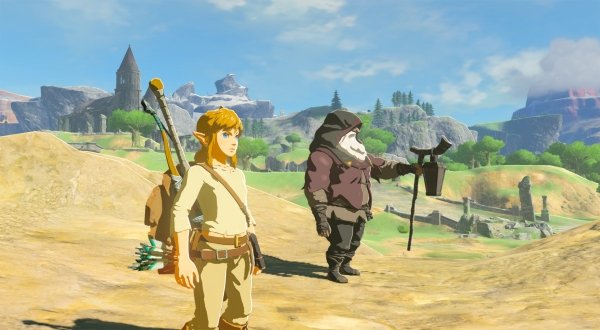Zelda: Breath Of The Wild's Ending Is Different In Japanese, Here's What Changes

The localization process for a lot of games creates moments and situations in games where the outcome or dialogue for some characters are different for different regions. A perfect example of this is the ending involving Ganon in The Legend of Zelda: Breath of the Wild in North America and the ending that Japanese gamers received.
Over on the Legends of Localization website, translator Clyde Mandelin was asked about the very different ending dialogue that takes place in The Legend of Zelda: Breath of the Wild. Obviously, if you haven't played the game and you have intentions on playing the game, it's probably wise not to read further because there are some spoilers ahead.
In the English version during the final form that Calamity Ganon takes on, the text says "He has given up on reincarnation and assumed his pure, enraged form."
Gamers noticed that in the Japanese version the text is different, where it states that "This form was born from his obsessive refusal to give up on revival..."
It's quite obvious that in one version of Breath of the Wild it's saying that Ganon won't be reincarnating in order to come back and fight again; he's putting all of his rage into one final form to fight Link and Zelda in that final showdown.
In the Japanese version Ganon basically is in a position where his enraged form of Calamity comes from his obsession with refusing to give up on reviving, forcing him to fight with everything he has to destroy Link and Zelda and that he will continue to refuse to give up.
The change in localization and dialogue changes the overall scope of Ganon's goal during the final fight. In one instance it's saying that Ganon has exhausted all of his power in order to maintain an enraged form, while in the other it's saying that he will continue to find ways to come back.
Your Daily Blend of Entertainment News
In context, and in relation to the game's ending, in the English version it's interesting because Zelda notes that Ganon is gone "for now", giving the impression that he may return at some point in the future.
In the Japanese version it's interesting because it has a more definitive bit of dialogue from Zelda about the threat of Calamity Ganon being gone.
For gamers who don't worry about localization, this issue likely isn't all that important. For purists, this could end up rubbing them the wrong way when they want the best and closest form of localization that fits in with the original art. Then again, these kind of changes have been frequent with English translations throughout gaming history, with some games having actual mini-games removed from them like Fire Emblem: Fates, minor storylines altered like in Blade & Soul, or in the old Final Fantasy games it wasn't uncommon for the sprites and other changes to be made going from Japan to America. Heck, the games were renumbered in the West up until Final Fantasy VII.
Anyway, does the revelation of the slight dialogue change in Breath of the Wild's ending change how you viewed the game or is it just water under the localization bridge?
Staff Writer at CinemaBlend.

